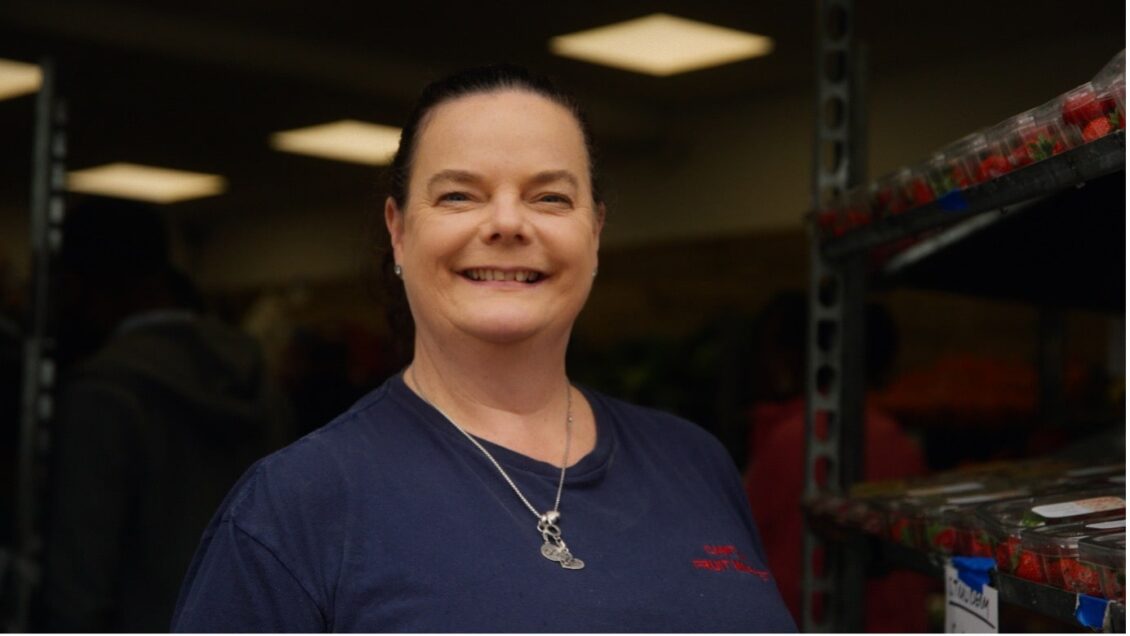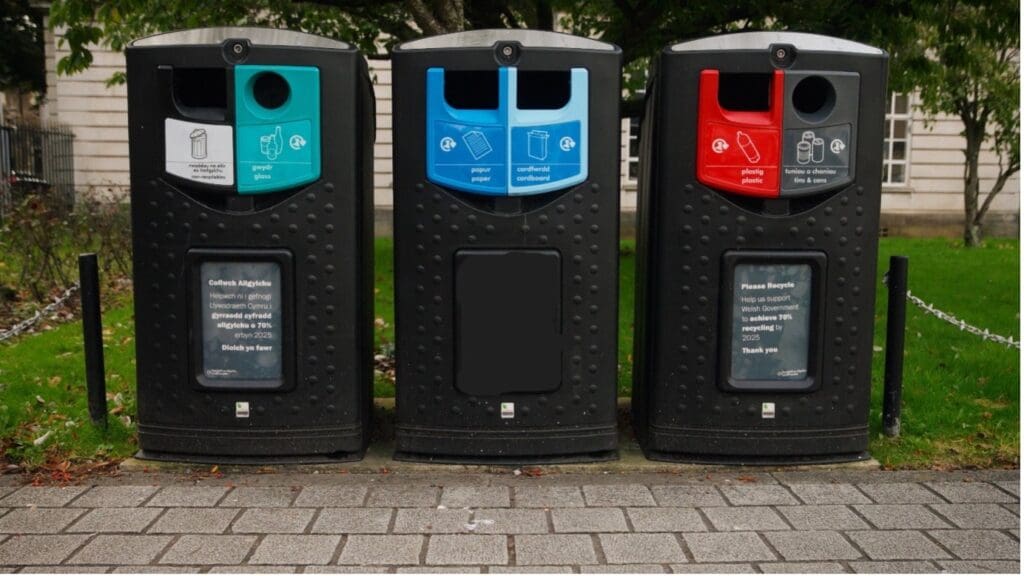From 6 April, all workplaces in Wales will have to separate their waste for recycling and arrange for it to be collected separately.
The new law is being brought in to improve the quality and quantity of recycling in Wales to help address the climate and nature emergency. It will also benefit the economy by capturing a resilient supply of high-quality recycled materials that can be used by manufacturing industries across Wales and beyond.
Many businesses have already changed their waste management systems ahead of the new law coming into effect. Here are the top five things’ workplaces need to know about the new law.
- What needs to be recycled – from 6 April, you will need to separate food (if you produce more than 5kg of food waste per week), glass; paper and cardboard; and metals, plastics, and cartons; as well as unsold textiles and unsold small electricals and arrange for it to be collected separately.
- Read a guide to help you prepare – there are guides to help you understand what you need to do to be ready for the changes on the Welsh Government website here: gov.wales/workplace-recyling
- Your waste collector can help – depending on your current waste collection system, you may need new bins to ensure you can separate your waste correctly for collection. You will need to consider the size of these bins, how many you need, and how often they need to be collected. Contact your waste collector to discuss what it means for your workplace.
- Use clear signs – make it as easy as possible for staff, customers, and visitors to use the bins by using clear signs to show what materials need to go in what bins. There are signs and labels available on WRAP’s website you can download and use here: https://businessofrecycling.wrapcymru.org.uk/resources
- Communicate the changes – you will need to consider how you will communicate the new changes to your staff, colleagues, visitors, guests, or students. Depending on the size of your organisation, you may need to think about how you will go about doing this. A guide and advice is available on this website: https://businessofrecycling.wrapcymru.org.uk/resources

With almost two-thirds (63%) of businesses in Wales classified as small and medium sized enterprises[1], we spoke to Cardiff-based retailer the Canton Fruit Market to get their perspective on the new law and how it has impacted their business.
Linda Breen, Sales Assistant at the Canton Fruit Market said, “We did have some concerns initially about making the changes, but we quickly learned that change can be a good thing.
“All our waste used to just go into one big bin out the back of the premises, but due to its size, it was not collected very frequently, and it took up a lot of space.
“Now we are finding that our recyclable waste is being collected twice a week, and the smaller bins take up a lot less space. We are also producing much less general waste, so we are saving money. It has also made us think much more about our recycling and other ways we can reduce our overall waste.”
We also spoke to Mermaid Quay in Cardiff Bay, which has supported all the food outlets and restaurants in the bay in making changes to their waste management.
Since making adaptations to their bins and separation of waste, they have reported reducing waste disposal costs by two-thirds. This has also increased recycling rates, while in turn reducing waste management costs.

Becky Jones, Marketing Manager from Mermaid Quay said: “The process has been surprisingly straightforward and has made a huge difference in both our outgoing costs and overall recycling quantity.”
In just 20 years, Wales has gone from recycling less than 5% to recycling 65% of our waste and is now ranked third in the world for household waste recycling. This helps to save around 400,000 tonnes of carbon emissions every year. The new law will help to continue to increase recycling rates while supporting Wales’ commitment to become a zero-waste nation by 2050.
For more information on how to get ready for the new law visit www.gov.wales/workplacerecycling.

